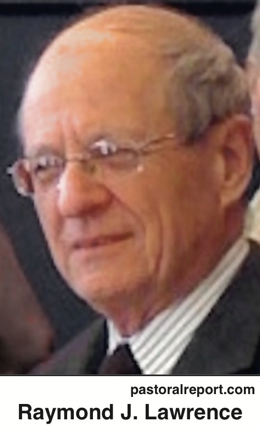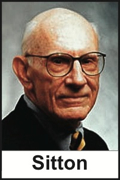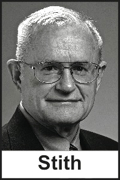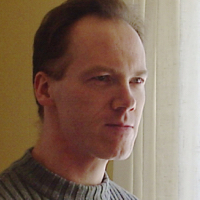Rascals case in brief
In the beginning, in 1989, more than 90 children at the Little Rascals Day Care Center in Edenton, North Carolina, accused a total of 20 adults with 429 instances of sexual abuse over a three-year period. It may have all begun with one parent’s complaint about punishment given her child.
Among the alleged perpetrators: the sheriff and mayor. But prosecutors would charge only Robin Byrum, Darlene Harris, Elizabeth “Betsy” Kelly, Robert “Bob” Kelly, Willard Scott Privott, Shelley Stone and Dawn Wilson – the Edenton 7.
Along with sodomy and beatings, allegations included a baby killed with a handgun, a child being hung upside down from a tree and being set on fire and countless other fantastic incidents involving spaceships, hot air balloons, pirate ships and trained sharks.
By the time prosecutors dropped the last charges in 1997, Little Rascals had become North Carolina’s longest and most costly criminal trial. Prosecutors kept defendants jailed in hopes at least one would turn against their supposed co-conspirators. Remarkably, none did. Another shameful record: Five defendants had to wait longer to face their accusers in court than anyone else in North Carolina history.
Between 1991 and 1997, Ofra Bikel produced three extraordinary episodes on the Little Rascals case for the PBS series “Frontline.” Although “Innocence Lost” did not deter prosecutors, it exposed their tactics and fostered nationwide skepticism and dismay.
With each passing year, the absurdity of the Little Rascals charges has become more obvious. But no admission of error has ever come from prosecutors, police, interviewers or parents. This site is devoted to the issues raised by this case.
On Facebook
Click for earlier Facebook posts archived on this site
Click to go to
Today’s random selection from the Little Rascals Day Care archives….
Click for earlier Facebook posts archived on this site
Click to go to
Today’s random selection from the Little Rascals Day Care archives….
After 20 years, plea to parents still unanswered
 April 11, 2014
April 11, 2014
“It may be hard for you to own the fact that you were duped by therapists and prosecutors, as well as misled by your own naivete about childhood sexuality. While it may be difficult now to acknowledge your five-year-long wrong, it will be far worse if your children have to do it for you, and far worse for you and your children to have history indict you as an unrepentant bearer of these terrible false accusations.
“A place for you in history is already assured. What history finally writes about you now depends on you….”
– From “An Open Letter to the Accusing Parents in the Little Rascals Child Abuse Case” by Raymond J. Lawrence in Contra Mundum (Oct. 1, 1993)
Will even one Edenton parent ever heed Lawrence’s call to “to undo this elaborate fabrication that has caused years of suffering to so many”? What would it take to remove the blinders, to accept responsibility and to separate yourself from the true believers?
Potent weapon for N.C. DAs: court calendar
March 20, 2013
“Unlike their counterparts in every other state, North Carolina prosecutors have control over criminal court calendars.
“In the Little Rascals case, prosecutors used their trial-scheduling authority to let defendants wait for years before proceeding with their cases. They have held the power of the calendar over (Bob) Kelly for a decade without having to account to any other government authority.”
– From “Little Rascals Day Care case still not over” in the Raleigh News & Observer (Jan. 4, 1999)
Almost nine more months would pass before prosecutors dropped the last charges against Bob Kelly.
Despite efforts at reform, district attorneys in North Carolina still maintain near total control over court calendars.
Could N&O have thwarted ‘prosecutor gone wild’?
 March 18, 2013
March 18, 2013
“When I look back, I think my greatest mistake (was) my failure as editor of the News & Observer to make sure we had a top-notch investigative reporter on the Little Rascals case in Edenton.
“Our regional person was adequate as a regional correspondent, a full-time staffer, but he was not the person to see what was wrong with this case and to do the necessary digging to root it out.
“That prosecutor had gone wild, eaten up by ambition, I suppose, to hang these people, these people who operated the Little Rascals Day Care Center, no matter how.
“…All the kids talked about being borne through the air this way and that way and flying all over, and it was crazy stuff.
 “As it turned out, (the Edenton Seven were eventually released), but it wrecked their lives forever. And I still feel sorry about that, still feel sorry about it.
“As it turned out, (the Edenton Seven were eventually released), but it wrecked their lives forever. And I still feel sorry about that, still feel sorry about it.
“I think had we sent someone like Pat Stith down there, that would have been it.
“But see, at that time, Edenton already was a pretty far reach for the News & Observer…. (Our) pulling out of eastern North Carolina (to cut expenses) might have affected my thinking (about) whether we were really responsible for doing something about that miscarriage of justice.”
– From an interview with Claude Sitton, editor of the Raleigh News & Observer from 1968 to 1990 (Southern Oral History Program, Southern Historical Collection, UNC Chapel Hill, July 12, 2007)
Day-care panic rooted in more than sex-role changes

georgecaseblog.wordpress.com
George Case
Sept. 23, 2016
“We Believe the Children” offers a clear explanation of how a then-novel crusade for child welfare and a murk of neo-Freudian psychological theory together drove officials to find suppressed trauma where none existed, and [Richard] Beck also cites the popular nonfiction books Sybil (1973) and Michelle Remembers (1980) for their role in spreading acceptance of Multiple Personality Disorder and Satanic Ritual Abuse as authentic phenomena.
“He further argues that the day care scandals represented a conservative backlash on behalf of traditional family structures, in which fathers worked while mothers stayed at home to raise children, over the newer model of two busy parents dropping their kids off with professionals. In this reading, the contemporaneous wave of incest survivor memoirs and self-publicizing MPD victims likewise reinforced the traditionalist ideal of helpless females unable to cope in a modern society that gave women too much sexual and career freedom.
“Maybe. Yet Beck only devotes a paragraph or two to the burgeoning pop-culture fascination with the occult which preceded the Satanic panic, and it’s worth pointing out that, despite hit films like The Godfather and Scarface, no one in the 1980s was accused of recruiting children into a mobster underworld, and despite turmoil in the Middle East, day cares were not suspected of being fronts for Islamic terrorists.
“Rather, the emphasis on perversion, ritual killing, and cultism which characterized the scare drew on obvious sources in the mass entertainment of the mid-1960s onward. As I’ve written in my book Here’s To My Sweet Satan: How the Occult Haunted Music, Movies, and Pop Culture, 1966-1980,
For a culture accustomed to the bloody rampages of Charles Manson, the shameless perversities of Anton LaVey, and the no-holds-barred gross-outs of The Exorcist, such combinations of cruelty, vulgarity, and the occult [in the McMartin charges] were no longer surprising.…For a long time the public had been bombarded with messages of what Satan and Satanists were like, of the words, images, and symbols associated with devil worship, and especially of how children were Satan’s favorite victims. It had all finally proved too much for some people.
“I believe it’s this influence that fostered the climate for McMartin and other travesties, at least as much as any right-wing fantasies about dutiful moms and dangerous outsiders….”
– From “Children of the Grave” by Canaadian author and blogger George Case (Sept. 23)
An earlier challenge to Beck’s emphasis on conservative backlash points a finger at feminism.
![]()











0 CommentsComment on Facebook